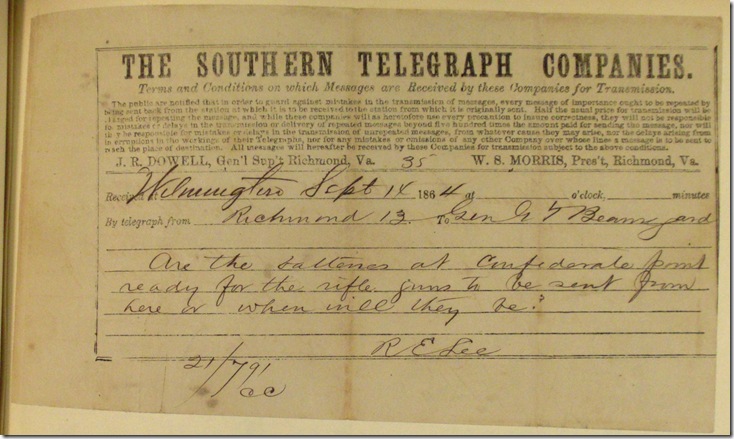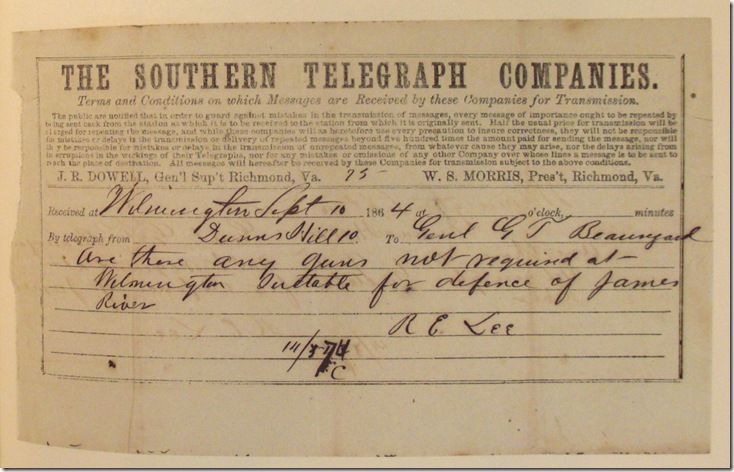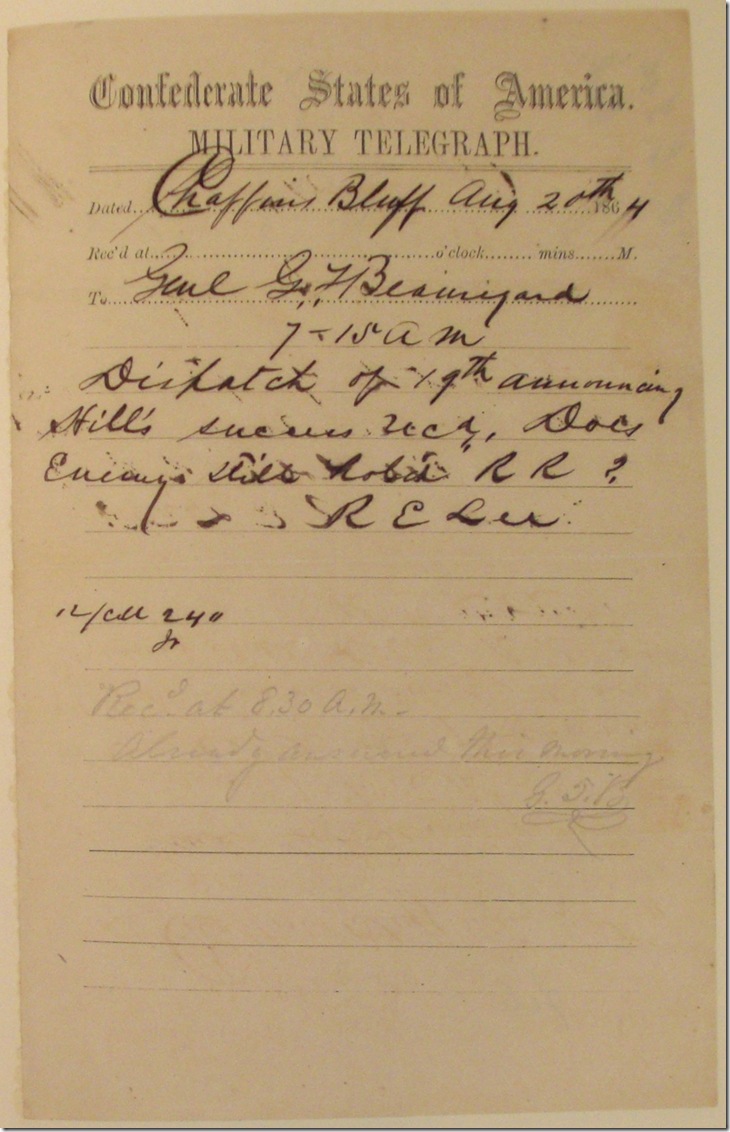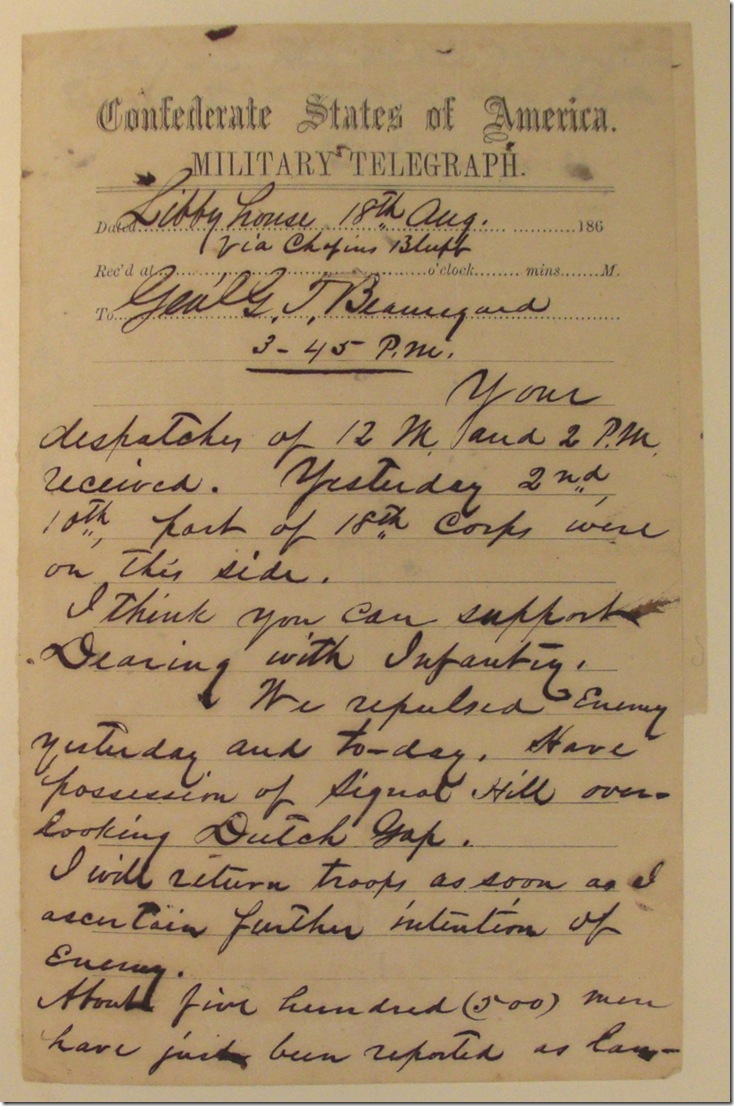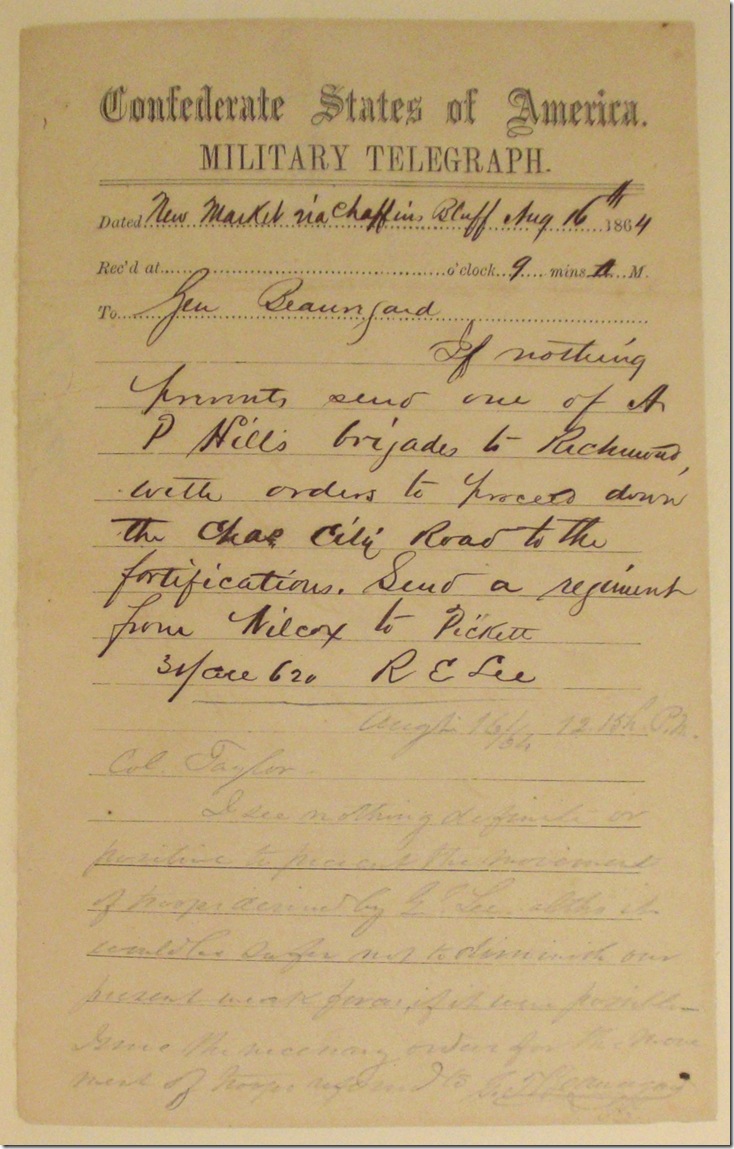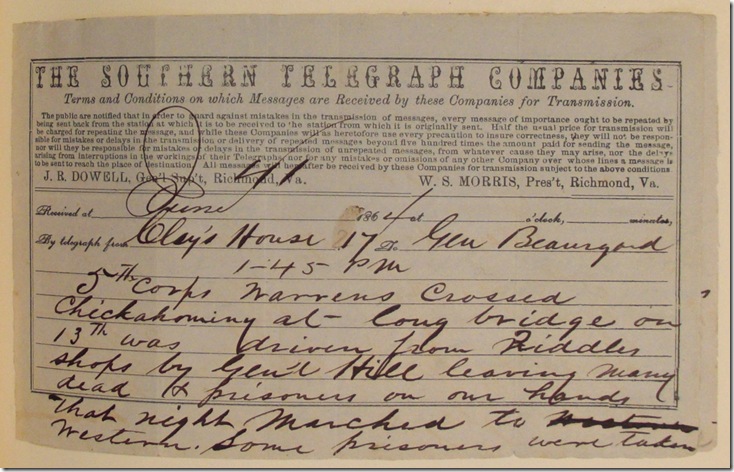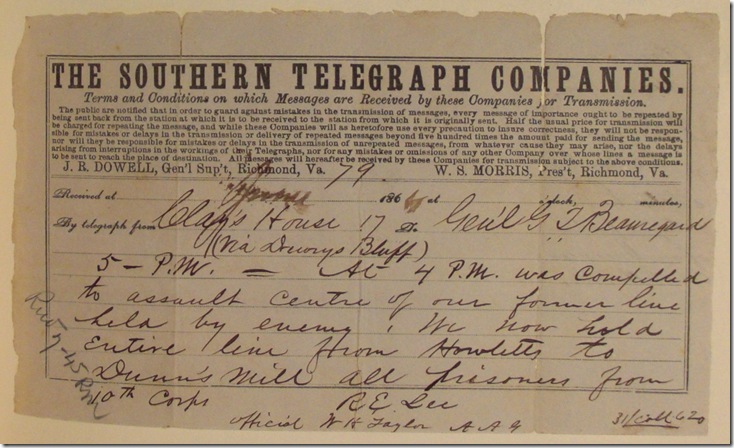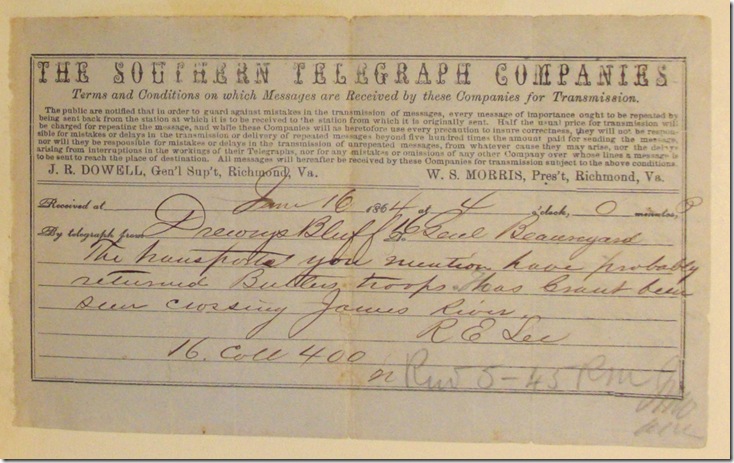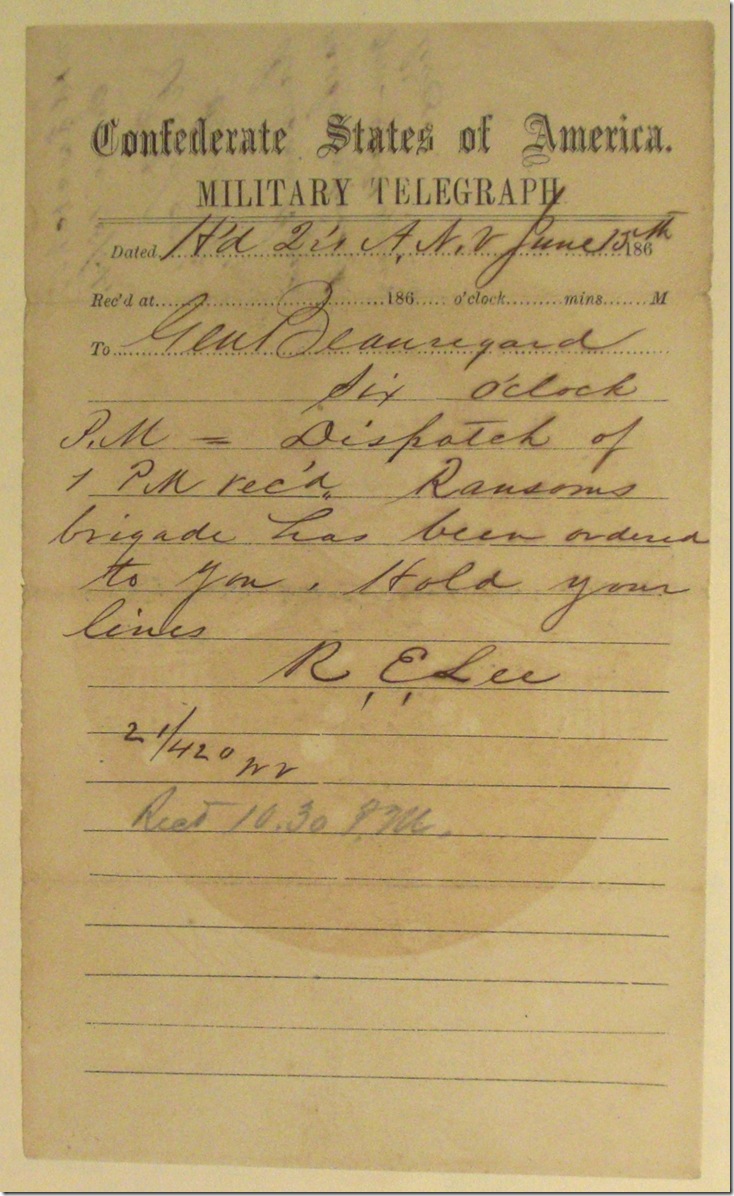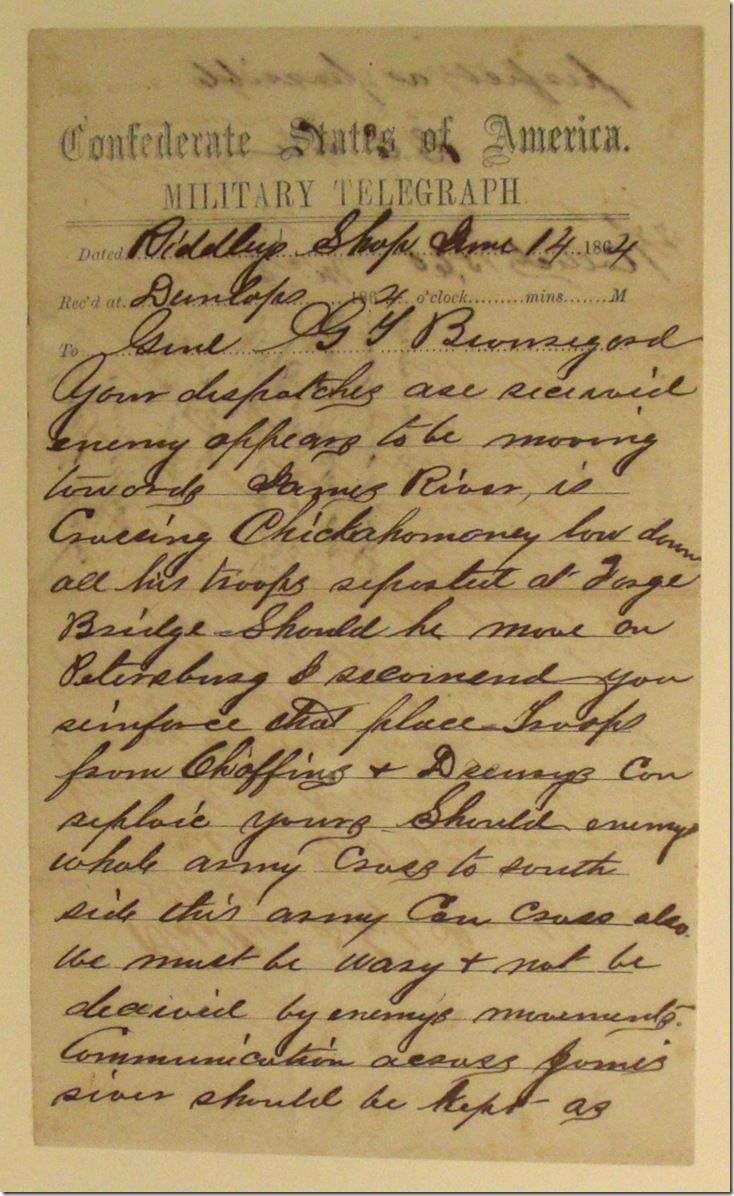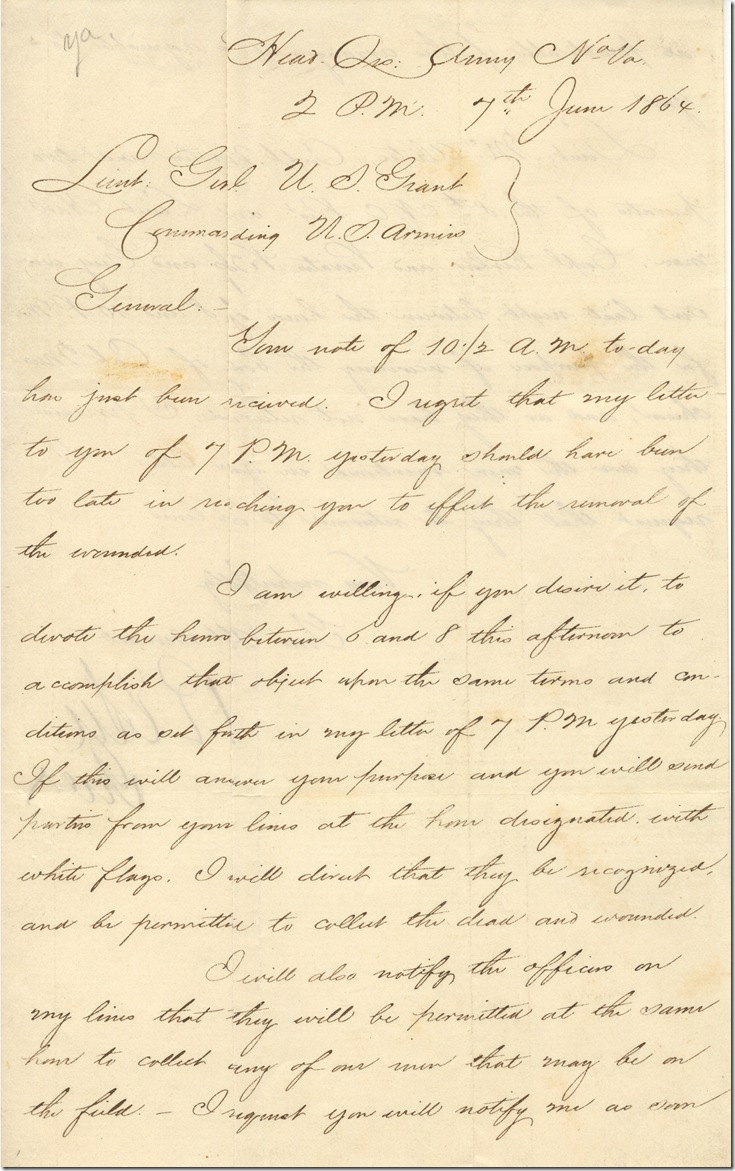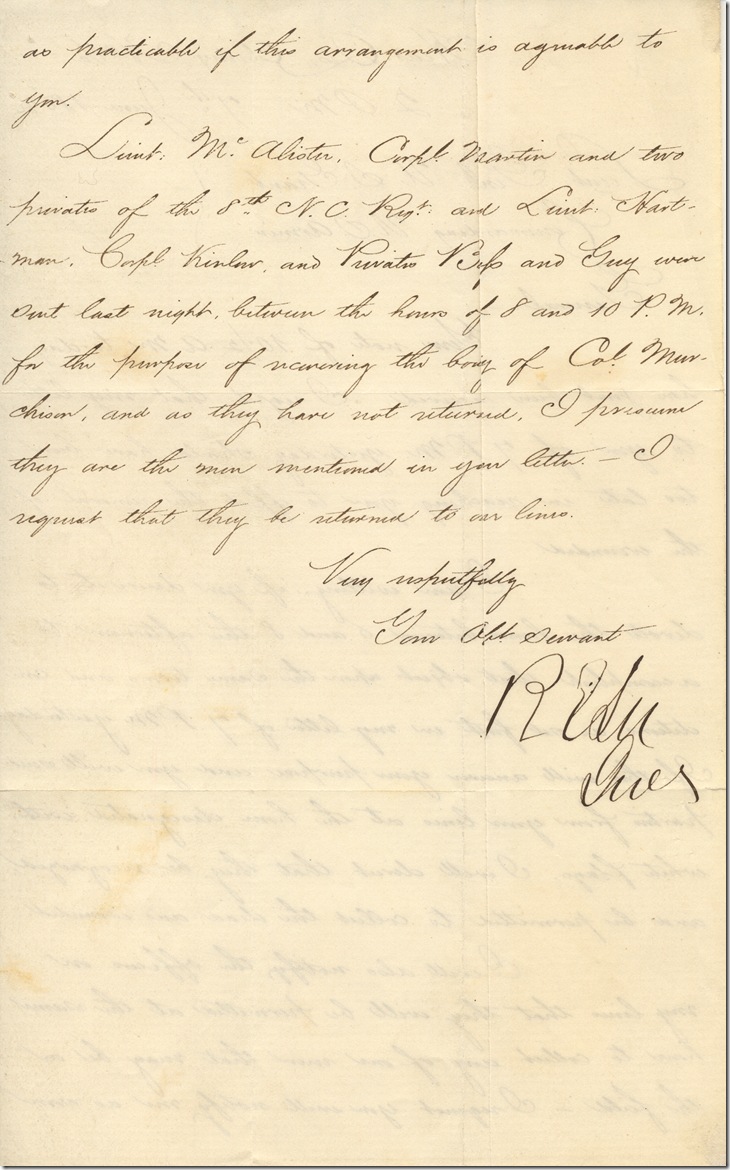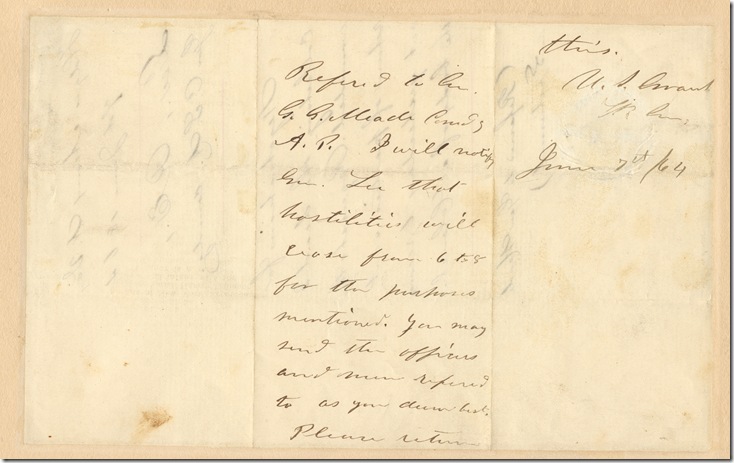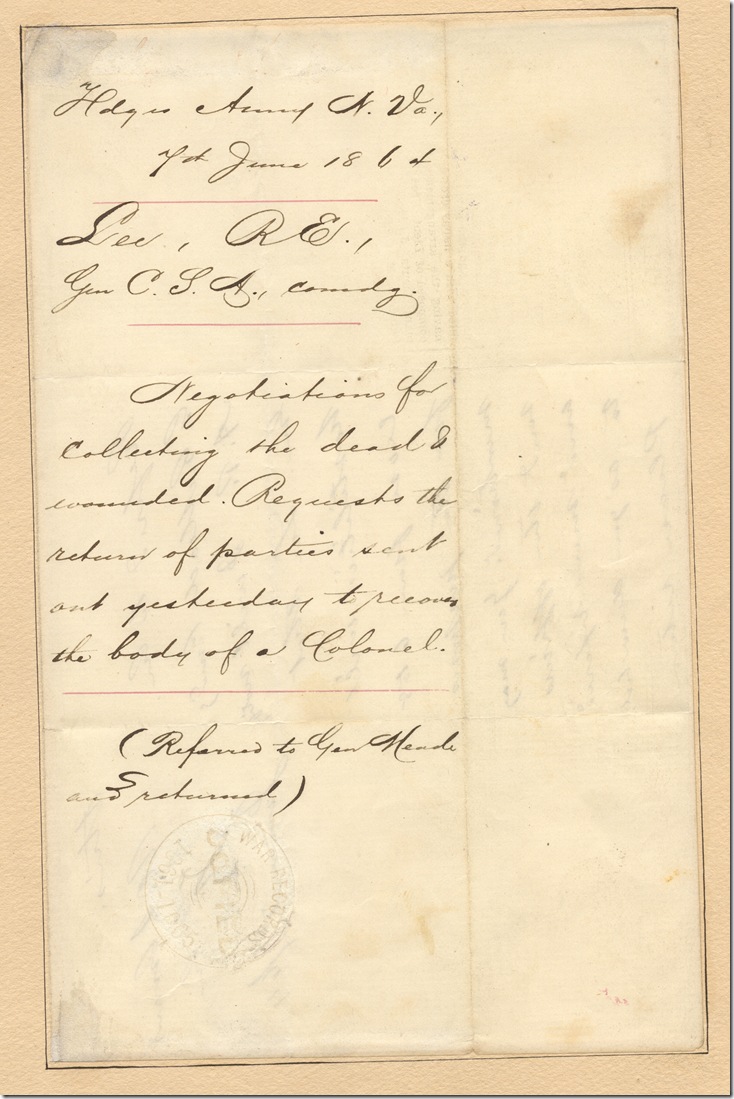Pierre Gustave Toutant Beauregard was a Louisiana-born general of the Confederate States Army. He had graduated second in his class from West Point in 1838 and was an admirer of Napoleon. He achieved fame early in the Civil War for commanding the Fort Sumter bombardment and as the victor of the first battle of Manassas. He later served in the Western Theater (including Shiloh and Corinth), Charleston, and the defense of Richmond, but his career was hampered by friction with Jefferson Davis and other generals.
This telegram is from The Telegraphic History of the Civil War; a compiled album of telegrams to Beauregard from Davis, Lee, Johnston and others.
Transcript:
Received at Wilmington Sept 14 1864
By telegraph from Richmond 13 To Gen G T Beauregard
Are the batteries at Confederate point ready for the rifle guns to be sent from here or when will they be?
R E Lee
21/791 cc
Citation:Robert E. Lee (1807-1870), telegram to G.T. Beauregard. Richmond, 14 September 1864. In The telegraphic history of the Civil War, 1861-1865. AMs 434/16
